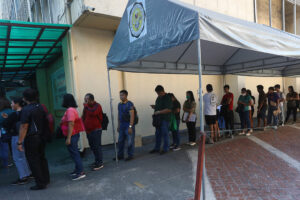The Food and Drug Administration (FDA) recently updated its list of prescription drugs and essential medicines exempt from value-added tax (VAT), adding 16 new medicines for the treatment of cancer, diabetes, and mental illnesses. The VAT exemption aims to make these medicines more affordable for the general public. However, this piecemeal approach, while commendable, falls short of addressing the broader issue of healthcare affordability.
Seniors and Persons With Disabilities (PWDs) already enjoy VAT exemptions on their prescription medicines, coupled with a 20% discount. This also extends to their vitamins and supplements, if prescribed. Additionally, certain medicines for hypertension, cancer, mental illnesses, tuberculosis, kidney diseases, diabetes, and high cholesterol are now universally exempt from VAT. These measures are steps in the right direction, but they leave significant gaps.
In my opinion, the FDA should abandon its selective exemption process. Instead, Congress should pass legislation to exempt all prescription drugs from VAT. While this may erode tax revenues, it would significantly reduce the financial burden of healthcare on patients, particularly the poor, and lower the public cost of maintaining government inventories of essential medicines.
Healthcare costs are a global concern. Taxing essential medicines exacerbates the financial strain on patients, who may already struggle to afford basic needs. The government should exempt all prescription drugs from all forms of sales tax as a way of ensuring affordability and equity. This universal exemption would prevent inequities in access and demonstrate a strong commitment to public health No one should be forced to choose between buying medicine and meeting other essential needs. Medicine, like food and water, is a basic necessity. Taxing essential medicines is not only regressive but also perpetuates inequality and undermines the principle of universal healthcare. By taxing medicine, we effectively penalize illness — an injustice that disproportionately affects those least able to bear the cost.
Access to medicine is fundamental to the right to healthcare. Universal healthcare demands universal access to affordable medicines. Without VAT exemption for all prescription drugs, we fall short of achieving true universality. The current practice of taxing medicines unfairly punishes those who are sick and amplifies the challenges faced by people with chronic illnesses requiring long-term treatment.
VAT undeniably inflates the cost of medicine. The key question is whether the revenue collected from taxing medicines outweighs the public health benefits of universal VAT exemption. There may be evidence to suggest that it does not. High out-of-pocket costs deter many from seeking timely treatment, leading to poorer health outcomes and higher long-term healthcare expenditures.
Tax exemption should be viewed as an investment in public health rather than a cost. Preventing illness and reducing the need for expensive interventions saves more in the long run than the short-term revenue gained from taxing medicines. Universal exemption would also reduce the administrative burden of maintaining and updating selective exemption lists.
Countries like the United Kingdom and Canada have long recognized the essential nature of medicines by exempting prescription drugs from sales taxes entirely. Australia takes this a step further, combining tax exemptions with subsidies to make medicines even more accessible. These policies have demonstrably improved access and public health outcomes in their respective countries.
In contrast, the United States adopts a mixed approach. While federal laws exempt prescription drugs from taxes, some states still impose sales taxes on medicines. This patchwork system creates disparities in affordability and access. Similarly, India levies a sales tax on medicines, with limited exemptions. However, India’s robust generics industry helps mitigate costs domestically, making medicines more accessible despite the tax burden.
In the Philippines, VAT exemptions apply only to specific medicines. This selective approach creates “unequal relief,” leaving patients with other chronic conditions to bear high out-of-pocket costs. If the government truly aims to achieve universal healthcare, it must move away from piecemeal measures and adopt a comprehensive, universal exemption policy.
Admittedly, transitioning to a blanket VAT exemption for all prescription drugs will require careful consideration of its economic impact. While the government may lose revenue initially, the long-term benefits — including improved public health, reduced hospitalizations, and lower healthcare costs — would far outweigh these losses. Moreover, universal exemptions simplify tax administration, reducing compliance costs and opportunities for fraud.
One concern is the potential fiscal impact. How much VAT revenue does the government collect from medicine sales? This is a question that requires precise data from the Bureau of Internal Revenue (BIR) and the Department of Finance (DoF). A comprehensive cost-benefit analysis would help policy makers weigh the trade-offs and craft a sustainable policy.
The VAT exemption could begin with prescription drugs and expand over time to include other medical essentials, such as diagnostic tools and treatment products. Supplements, while beneficial, can be considered at a later stage. Complementing tax exemptions with subsidies for high-cost medicines would further enhance affordability and access.
Universal VAT exemption for all prescription drugs would be a clear statement of the government’s commitment to social equity and public health. Healthcare savings from reduced medication costs, coupled with the economic benefits of a healthier population, make this policy a win-win for all stakeholders.
As the Philippines continues its transition to universal healthcare, it must address the inequities in its current VAT policy. Universal exemption would bring us closer to the ideal of a healthcare system where no one is left behind due to financial barriers. A selective tax exemption for life-saving medicine is contrary to this ideal.
Marvin Tort is a former managing editor of BusinessWorld, and a former chairman of the Philippine Press Council.


















